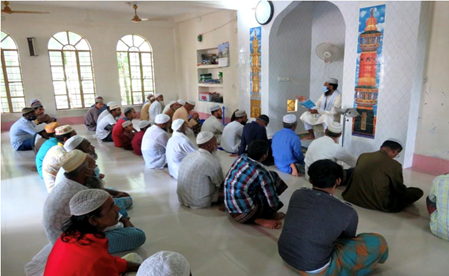Prevention of diabetes and related cardiometabolic parameters through faith-based interventions
In Bangladesh, Type 2 Diabetes Mellitus (T2DM) has emerged as a major public health challenge, driven by sedentary lifestyles, unhealthy diets, and limited physical activity. With nearly 89% of the population identifying as Muslim, religious leaders hold significant influence within communities, often serving as trusted voices on both spiritual and social matters. Recognizing this unique societal structure, the Diabetic Association of Bangladesh (BADAS) initiated an innovative program titled "Diabetes Prevention through Religious Leaders"—a faith-based intervention designed to prevent diabetes and reduce related cardiometabolic risks through the power of community and spiritual engagement.
This initiative effectively harnessed the influence of religious leaders to spread awareness and encourage healthier lifestyles. Religious leaders, trained to deliver health messages during prayers, religious gatherings, and counselling sessions, educated the community on diabetes prevention, healthy eating, exercise, and stress management and advocate, promote and encourage a healthy lifestyle through religious sermons as well as running the Diabetes Corner.
A cornerstone of the intervention was the establishment of Diabetes Corners that provided screening services for diabetes, hypertension, and nutritional status. These centres utilized digital tools, including a mobile app, to collect sociodemographic, clinical, biochemical, and financial data, which were integrated with the Nationwide Diabetes Registry of BADAS. The corners were also linked to government-run Upazila NCD corners and BADAS hospitals for referrals and follow-up care.
To expand outreach, BADAS partnered with local mosques to organize workshops and health camps in both rural villages and urban slums, ensuring accessibility for underserved populations. Educational materials were distributed widely, and religious leaders worked hand-in-hand with healthcare professionals to develop culturally sensitive health promotion messages tailored to local beliefs and customs.
Over 100 religious leaders were trained in diabetes and cardiometabolic health promotion. More than 50,000 individuals received screening and educational services through Diabetes Corners, while around 5 million people received information on healthy lifestyle. 300,000 mosques became active platforms for disseminating prevention messages, creating a network that connected with 20 million people across the country.
Key outcomes included a 25% reduction in new cases of diabetes and hypertension in targeted areas. Faith leaders emerged as powerful advocates for health, enhancing trust in medical advice and promoting long-term behavioural change. The intervention proved sustainable—many communities continued promoting health messages even after the formal program had ended.
This initiative was made possible through strong collaboration between the Bangladesh Ministry of Health and Family Welfare, the Ministry of Religious Affairs, local religious institutions, and NGOs.

